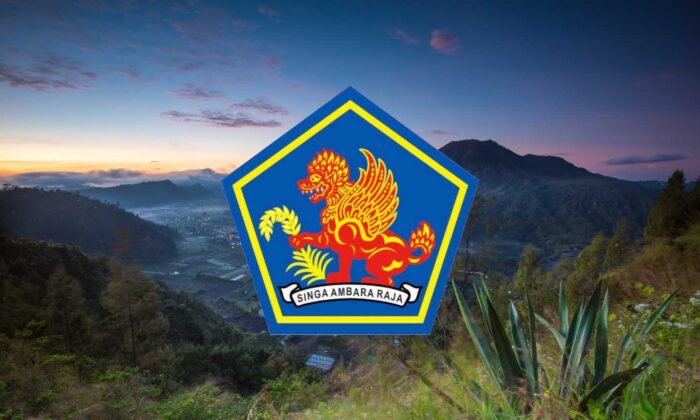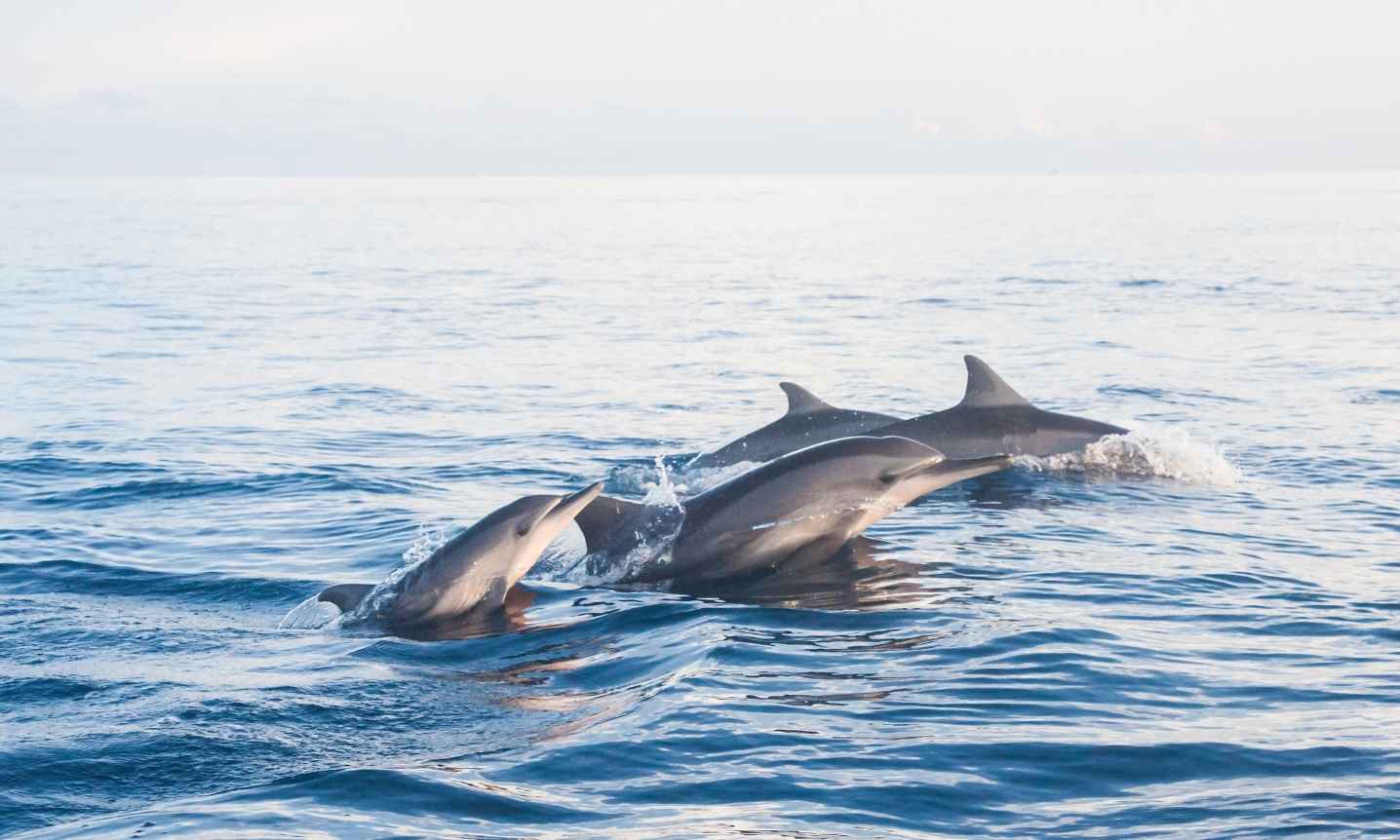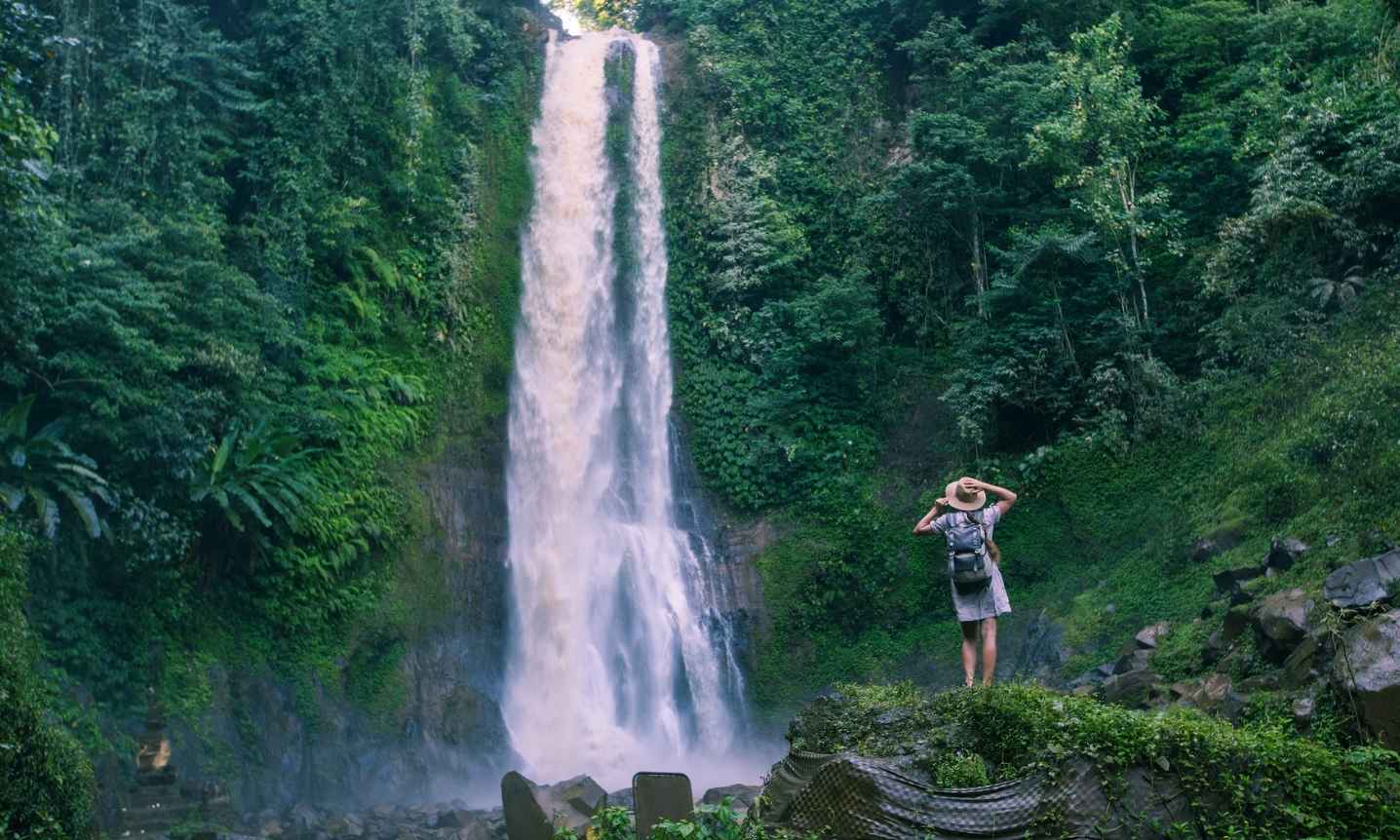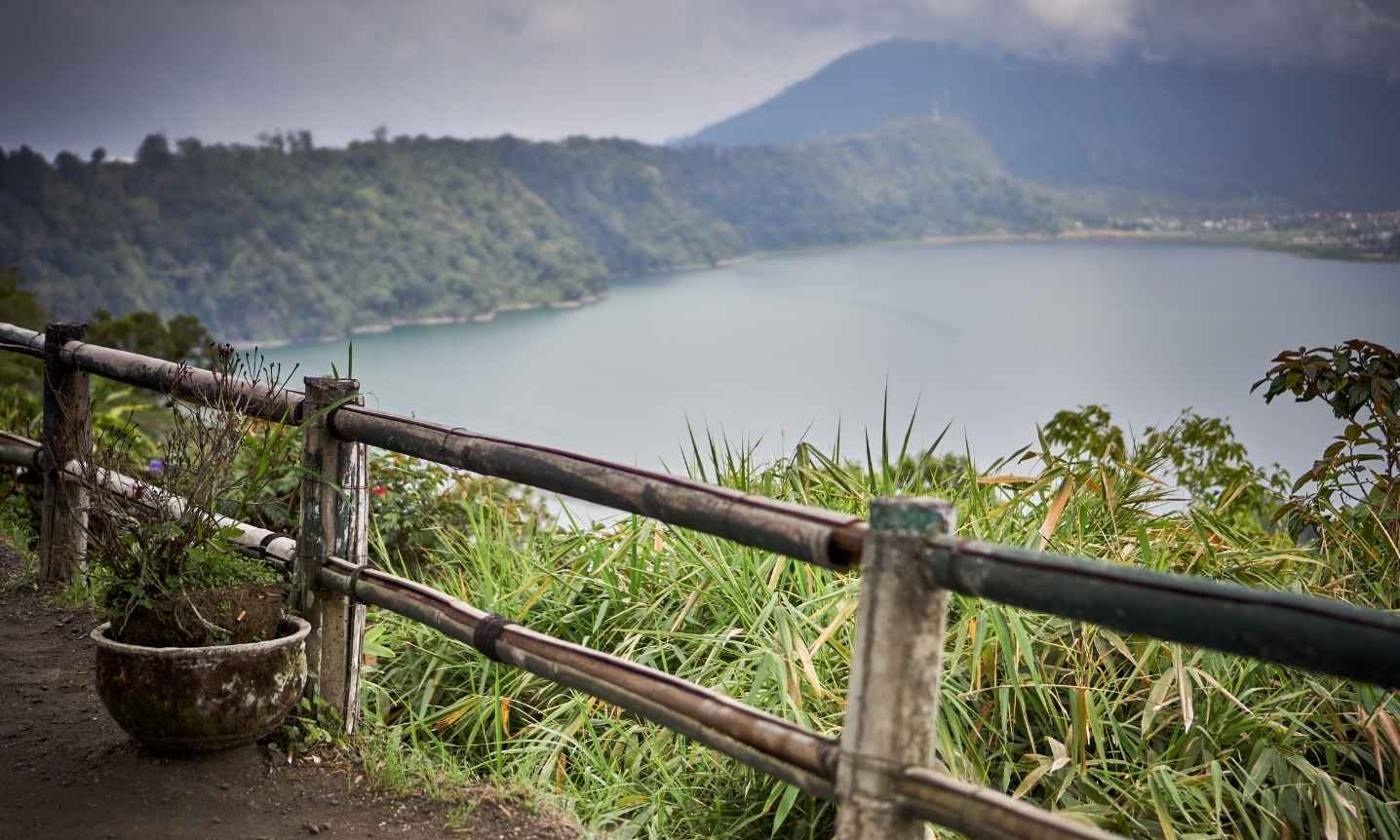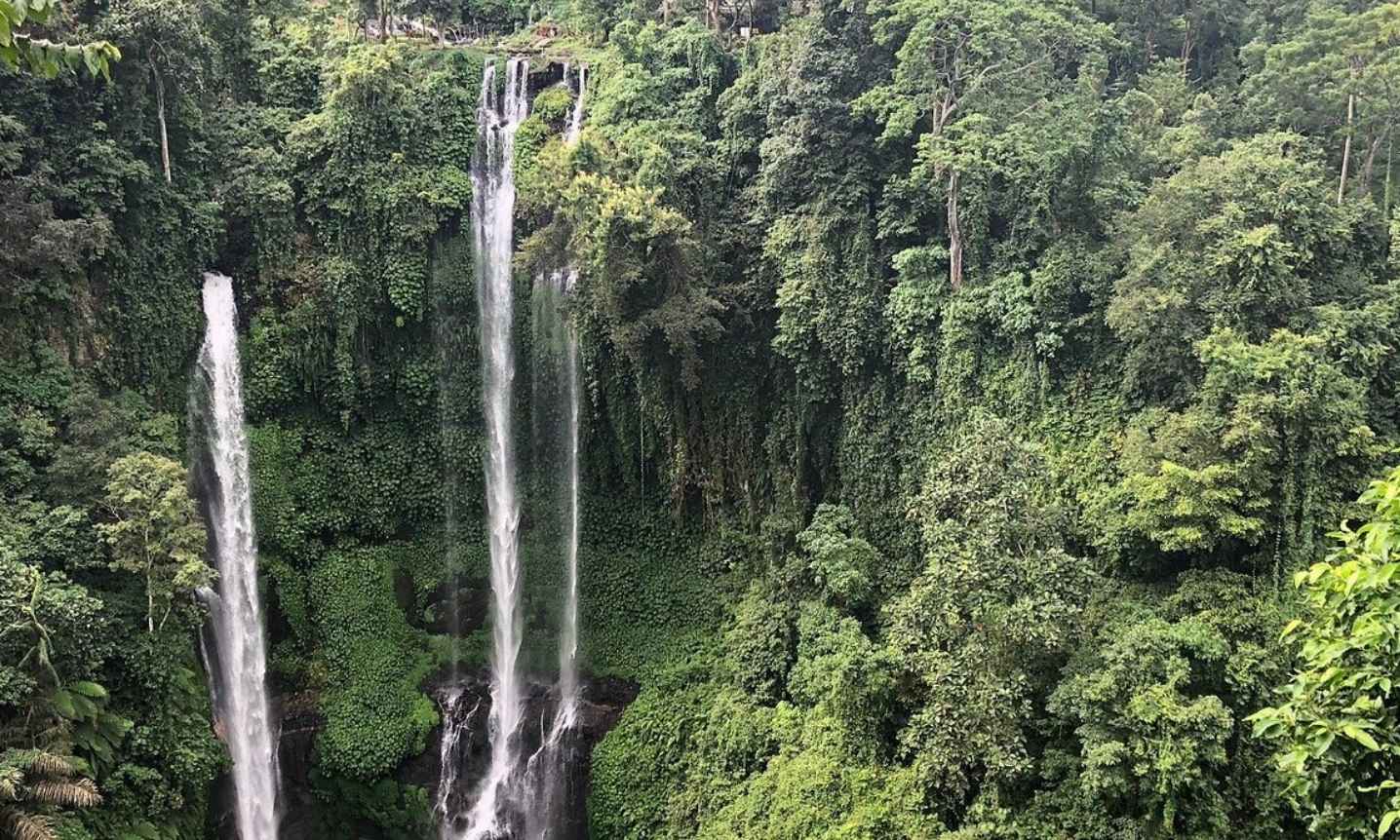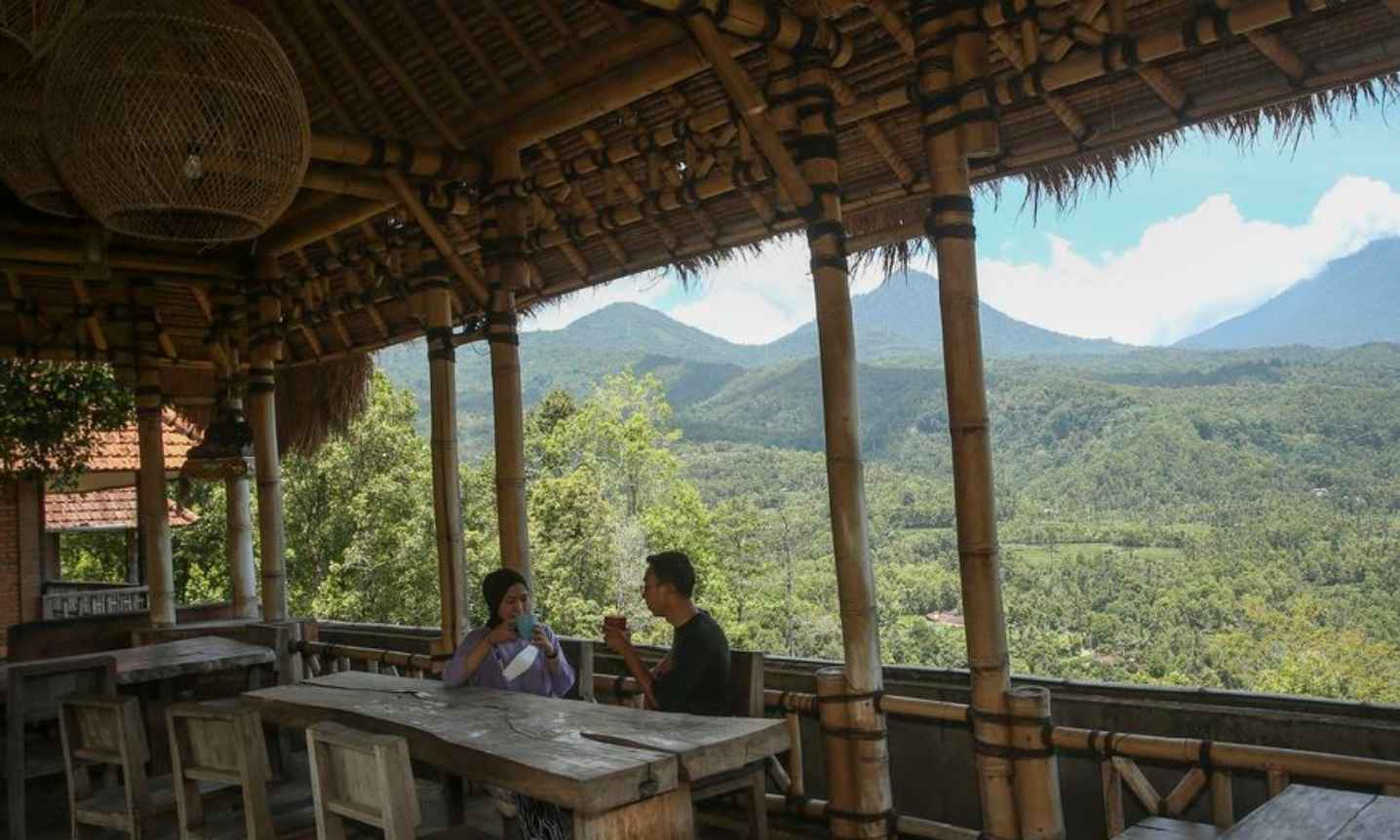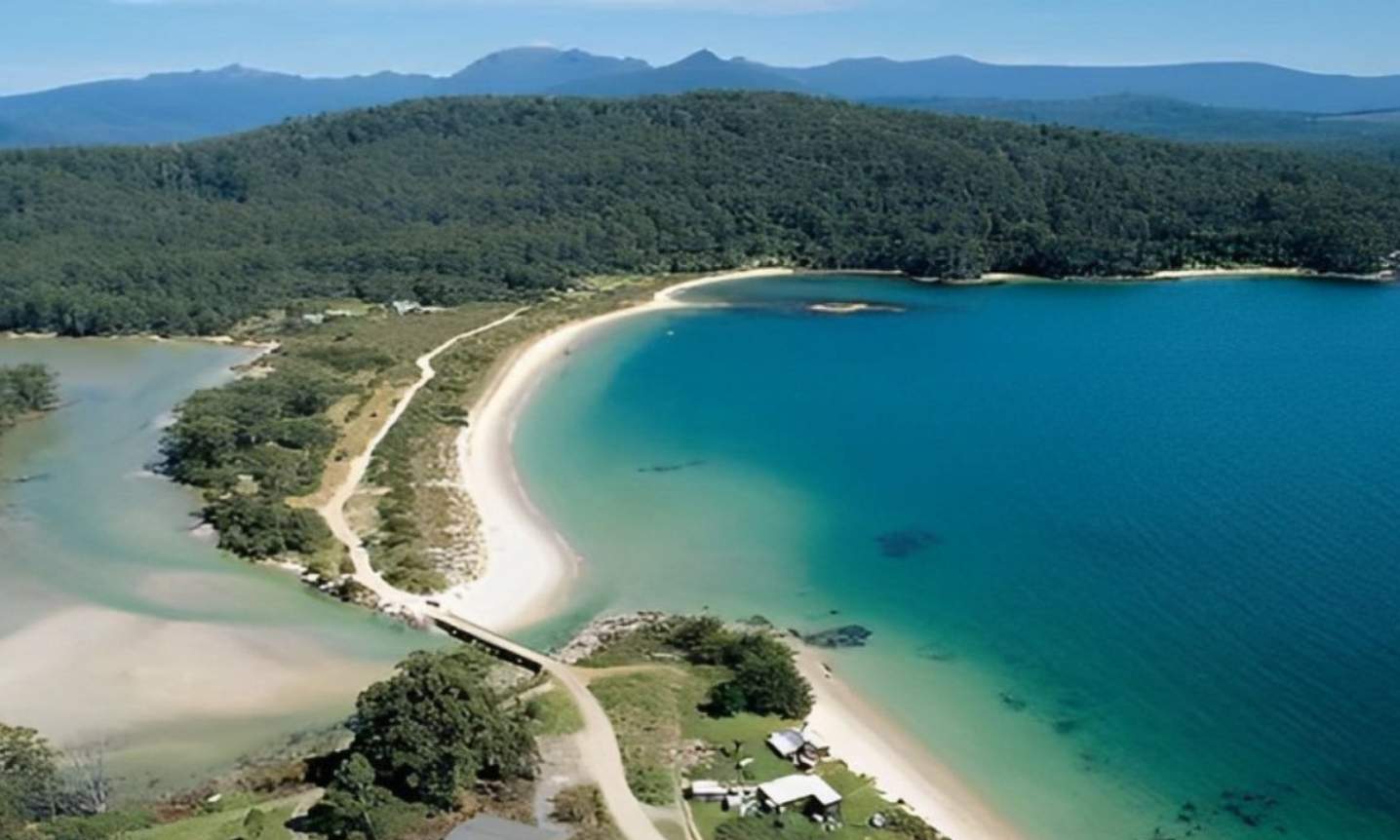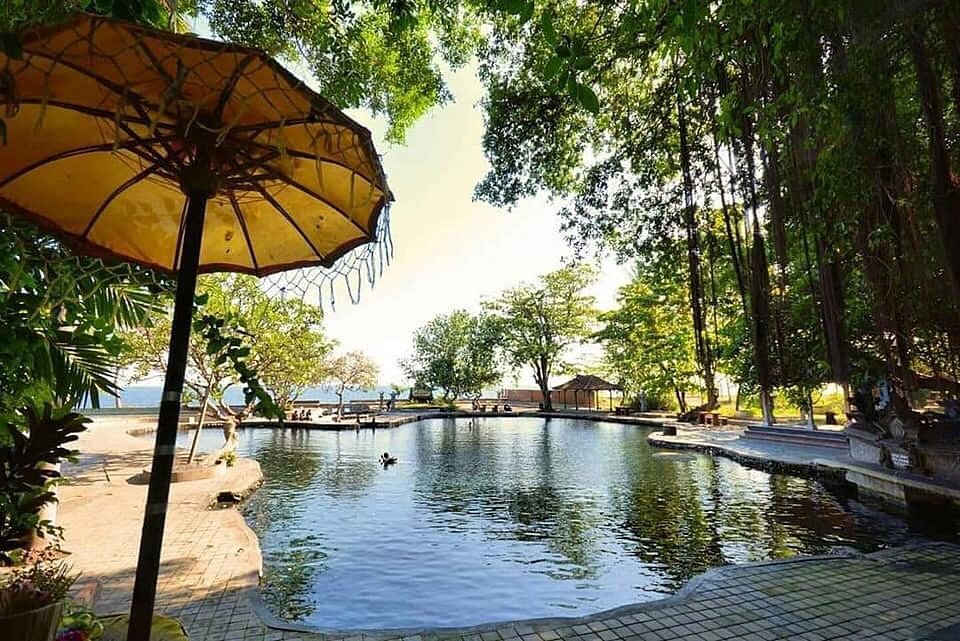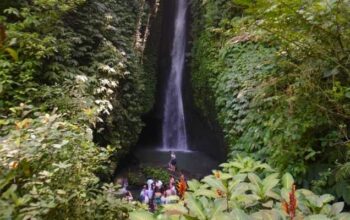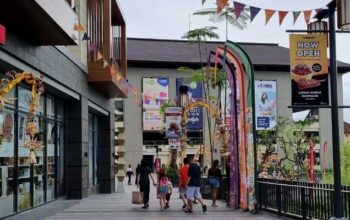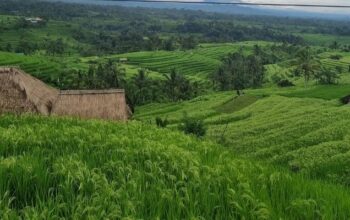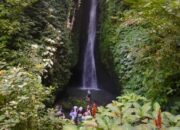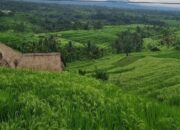Bali might be famous for its southern beaches and the nightlife of Canggu or Seminyak, but if you’re looking for a more natural, peaceful, and less touristy side of the island, then Buleleng in North Bali is the answer.
Buleleng Regency is the largest region in Bali and offers a perfect blend of lush mountains, exotic waterfalls, traditional villages, and tranquil beaches. With a more relaxed and authentic atmosphere, Buleleng is ideal for travelers who want to experience the true essence of Bali, far from the crowds.
1. Lovina Beach: Greeting Dolphins at Sunrise
Lovina Beach is the icon of North Bali tourism. This beach is famous for its early-morning wild dolphin sightings in the open sea.
Activities in Lovina:
-
Ride a traditional boat (jukung) to spot dolphins.
-
Snorkeling and diving in calm waters.
-
Relax in the afternoon while enjoying a peaceful sunset.
-
Experience the friendly and modest vibe of the coastal village.
Many accommodations near Lovina offer a comfortable and affordable stay.
2. Gitgit Waterfall: Mountainous Natural Beauty
Gitgit Waterfall is one of the most well-known waterfalls in Buleleng. Located in the highlands, it presents pristine natural scenery and refreshing air.
Highlights:
-
Easy access via a well-maintained footpath.
-
Approximately 35 meters high with strong water flow.
-
Surrounded by tropical trees and a peaceful nature vibe.
Gitgit is perfect for families or solo travelers who want to reconnect with nature.
3. Lake Buyan and Lake Tamblingan: Highland Serenity
These twin lakes are located in the highlands of Bedugul and are part of Buleleng’s ecotourism.
Exciting activities:
-
Camping by the lakeside.
-
Trekking in the surrounding tropical rainforest.
-
Traditional wooden canoe rides across Lake Tamblingan.
-
Visiting Ulun Danu Tamblingan Temple, a unique small temple by the lake.
Perfect for nature lovers, photography enthusiasts, and spiritual travelers.
4. Sekumpul Waterfall: A Hidden Paradise in the Jungle
Sekumpul Waterfall is considered one of the most beautiful waterfalls in Bali—many even say it’s the best.
Why it’s special:
-
Multiple waterfalls in one area.
-
Nestled in dense forest and rice fields.
-
Reaching it involves an adventurous trek through valleys and streams.
Great for active travelers ready to explore the hidden gems of North Bali.
5. Munduk Village: Mountain Village with Stunning Scenery
Munduk is located in the Buleleng highlands and offers a refreshing atmosphere with views of mountains, green valleys, and coffee plantations.
What to do:
-
Stay in an eco-lodge with sunrise and morning mist views.
-
Visit Munduk and Melanting Waterfalls.
-
Enjoy Balinese coffee from local plantations.
-
Trek through plantations, rice fields, and traditional villages.
Munduk is ideal for slow travel and peace seekers.
6. Pemuteran: Gateway to West Bali National Park
Located in the far northwest of Buleleng, Pemuteran is a coastal village that serves as a gateway to Menjangan Island and the West Bali National Park conservation area.
Main activities:
-
Snorkeling and diving in Menjangan Island’s coral reefs.
-
Exploring the national park with a local guide.
-
Joining coral reef and turtle conservation tours.
-
Yoga and relaxation at quiet beachfront resorts.
Pemuteran is known for its eco-friendly marine tourism and nature harmony.
7. Air Sanih: Freshwater Spring Pool by the Beach
Air Sanih, or Yeh Sanih, is a unique natural bathing spot filled with freshwater directly from springs—even though it’s located very close to the sea.
Perfect for:
-
Family vacations.
-
Swimming and relaxing.
-
Enjoying seafood from local food stalls near the pool.
Air Sanih is a great spot to unwind without needing to head into the mountains.
8. Cultural Tourism in Buleleng
Though better known for its nature, Buleleng also holds a wealth of cultural heritage to explore:
-
Pura Beji in Sangsit: an ancient temple with Buleleng’s signature detailed carvings.
-
Gedong Kirtya in Singaraja: the world’s only lontar (palm-leaf manuscript) library museum.
-
Singaraja Heritage Walk: the old town and former capital of Bali with colonial buildings, an old harbor, and a blend of Balinese-Chinese-European heritage.
9. Buleleng Culinary Delights
Don’t miss tasting local culinary specialties when visiting Buleleng:
-
Sudang Lepet: Buleleng’s signature crispy fried salted fish.
-
Tipat Cantok and Jukut Undis: traditional North Balinese home-cooked dishes.
-
Sate Plecing: skewers with a spicy tomato-chili sambal.
Many local warungs and restaurants serve authentic Balinese cuisine in a cozy setting.
10. Access and Accommodation
Access:
-
From Denpasar to Lovina/Singaraja: around 2.5–3 hours by car via the Bedugul route.
-
From Gilimanuk (West Bali): about 2 hours to Pemuteran.
Accommodation:
-
Beachfront hotels and villas in Lovina and Pemuteran.
-
Eco-lodges and homestays in Munduk and highland villages.
-
Resorts with lake views around Bedugul/Buyan.
Travel Tips to Buleleng
-
Highland weather can be chilly, especially at night—bring a light jacket.
-
Wear comfortable shoes for waterfall trekking.
-
Plan your trip early to avoid traffic along the Bedugul route.
-
Respect local culture and temple etiquette when visiting.
-
Bring cash, especially when visiting villages and remote areas.
Conclusion: Buleleng, Bali’s Serene and Captivating Nature Paradise
Buleleng is a dream destination for those wanting to escape the hustle and bustle of mainstream Bali tourism. Here, you can reconnect with nature, enjoy the silence of the mountains, dive into crystal-clear seas, and feel the warmth of the local community.
From Lovina to Munduk, from Gitgit to Menjangan Island—Buleleng offers a different, authentic, and truly soothing Bali.
If you’re looking to experience a peaceful, spiritual, and stunningly beautiful side of Bali, Buleleng is a must on your travel itinerary.
